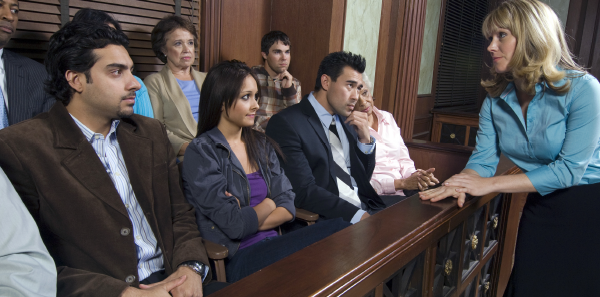
The Verdict and Aftermath
Receiving the verdict in a court trial is an emotional moment for most defendants. Even when there is a defense verdict (you “win”) and the relief is welcome, it will likely take a long time to put the ordeal behind you. If the verdict is for the plaintiff, the disappointment can be overwhelming. Recall from previous columns that most cases that go to trial are defensible, meaning they’re cases that you and your insurer feel might be won. A verdict for the opposite side can be crushing, and a large award to the plaintiff can exacerbate that.
Explore This Issue
ACEP Now: Vol 40 – No 04 – April 2021Any damages to be paid to the plaintiff may be determined in a separate conference, and in some states, the judge may alter this amount when entering their judgment on the decision (their order that the decision be filed in the public record). If there are co-defendants, the jury will typically assign responsibility for each one, though the rules on how this happens may vary by state.
Motions for a new trial may be entered after the verdict if it is felt that the judge made errors that unduly influenced the outcome. A notice of appeal may be filed if one side feels there is a legal basis, which will begin the appeals process.
In my next column, we’ll discuss how to prepare yourself practically and psychologically to deliver effective trial testimony and put your best foot forward.
 Dr. Pensa is clinical associate professor of emergency medicine at the Warren Alpert Medical School of Brown University in Providence, Rhode Island; associate director (education) of the Emergency Digital Health Innovation program at Brown; and creator and host of the podcast “Doctors and Litigation: The L Word.”
Dr. Pensa is clinical associate professor of emergency medicine at the Warren Alpert Medical School of Brown University in Providence, Rhode Island; associate director (education) of the Emergency Digital Health Innovation program at Brown; and creator and host of the podcast “Doctors and Litigation: The L Word.”
Pages: 1 2 3 | Single Page




One Response to “Physician on Trial: What to Expect”
May 16, 2021
Bruce Oran, DO, FACEPDr. Pensa, Thank you for a very nice review. In my career of more than 30 years, I was sued once and it was a doozy! It happened in my third year of practicing emergency medicine. The good news is, I won! If I have one word of advice for young doctors who are sued, that is participate. I believed the suit was unjust and I fought back by attending every deposition, reviewed all the literature, medically educated my attorney, helped choose my experts! I was also fortunate in that my policy allowed me to REFUSE TO SETTLE.I encourage everyone to try to get that clause in your policy. The patient had a great deal of damage (locked-in syndrome) and became a very sympathetic plaintiff. My lawyer (who by the way it should be understood works for the insurance company), the insurance company, etc all wanted me to settle though all agreed that I did nothing wrong. I refused! I was being sued for amounts above my limits (a plaintiff strategy to make defendant worried)which gave insurance company lots of exposure, but since I was poor at the time, I did not care (I owned nothing). I went to trial incredibly prepared, spoke to the jury the way I speak to patients, and even though the plaintiff had much damage, the jury agreed with me, it was not my fault! I enjoy retelling this story as even after 30 years, my message is relevant…immerse yourself in the proceedings and play a very active role. I learned the style of the plaintiff’s attorney and recognized my own attorney’s medical weaknesses. My greatest pleasure was after I won, the plaintiff’s attorney came up to me and told me, “he never enjoyed a defendant more”. Thoughh fortunately, I never had to go through this again, it was an experience all could benefit by.